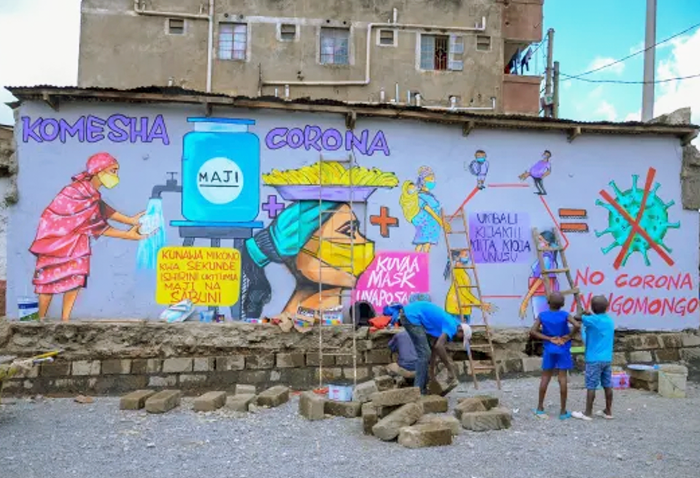
When the COVID-19 pandemic reached Kenya, social and mainstream media were flooded with prevention messages. Though all these initiatives are important, many Kenyans, particularly in informal settlements, have limited or no access to social and mainstream media. This is further exacerbated in informal settlements by limited literacy. This makes them particularly vulnerable in the event of a mass outbreak.
Hope Raisers, a community organization working in Korogocho, has been working to raise public awareness about Coronavirus prevention in the slum. Korogocho is the fourth largest informal settlement in Kenya, with more than 150,000 people crammed together in tin and mud shacks with open sewers and too-narrow paths.
“We began distributing public awareness materials in Korogocho, but soon realized most people were simply not reading them. Most materials were being torn down for personal use like toiletries, wrapping stuff and lighting of jikos (stoves),” says Daniel Onyango, founder and director of Hope Raisers.
Drawing on street art to reach the community
As a community organization that uses performing and visual arts to advocate for human rights, good governance, and political cohesion, Hope Raisers decided to use graffiti to raise awareness and spread information on coronavirus prevention.
Today, informative graffiti adorn different walls along roads with heavy foot traffic. According to Daniel Onyango, they estimate two in five people living in Korogocho have seen the graffiti. The organization is currently mobilizing resources locally to provide care packages to most vulnerable households in Korogocho.
Hope Raisers is a member of the Yetu Initiative’s community of practice, which brings together Kenyan civil society organizations to enable networking, sharing of best practices, and collaboration on projects. Yetu—meaning “ours” in Swahili—is a partnership funded by the Aga Khan Foundation and USAID. Since its inception in 2014, Yetu has worked with civil society organizations (CSOs) to advance principles of self-reliance and locally led development.